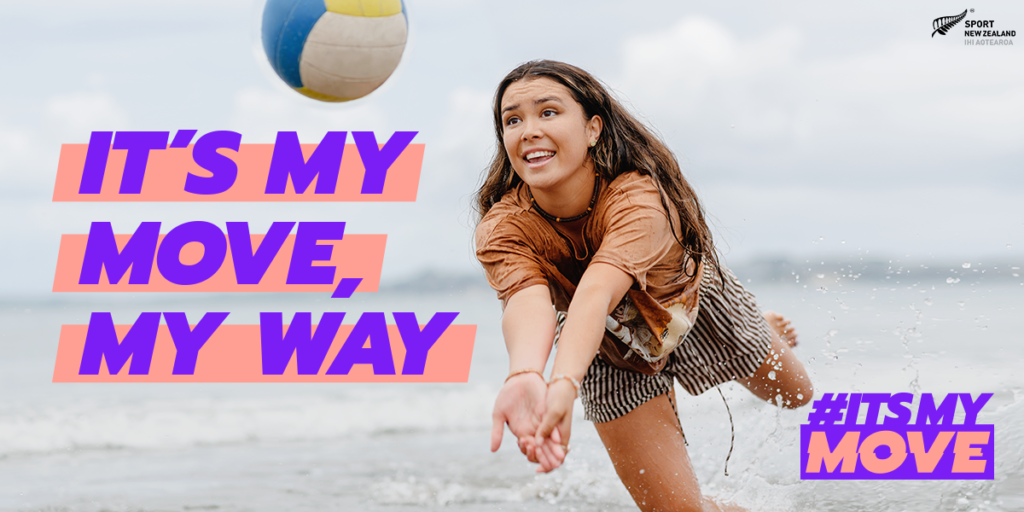We need to continue to ask ourselves if the rationale of the action or initiative has been informed by young women. If yes, ka rawe! Awesome! If not, then why are we doing it? We might need to go back to the drawing board.
I always considered myself to be a sporty teenager. I played a multitude of sports and experienced success, which reinforced my want to participate. However, when finishing high school, I immediately (quite literally) stopped playing competitive sport and never really understood why.
During my time at Sport NZ on the graduate programme, I’ve had the opportunity to learn more about why ‘traditional’ physical activity doesn’t meet the diverse needs of young women. This has led me to reflect on my own experiences and wonder how we can work more closely alongside young women to better shape and support their physical activity experiences.
The first and arguably most important learning I’ve had is the need to take a mana-enhancing/ strengths-based approach to working with young women. Society is constantly telling young women that they ‘aren’t enough’, which shouldn’t be reinforced in a physical activity space that’s meant to support their wellbeing.
What do I mean by this? A mana- enhancing approach recognises the strengths that each individual already has and looks to further develop these. In a physical activity context, this doesn’t just mean finding a netball position a young woman is good at and sticking them there (although that could be mana enhancing depending on the individual), it means recognising the knowledge, power, and awesomeness that a young woman already has and engaging them in ways that help them to thrive more holistically.
Within this approach, it is clear that young women need to be at the centre, always! This means that the wants, needs, preferences and wellbeing of the young women need to be the starting point and remain the focus. This can be difficult to wrap our heads around if our core focus is physical activity, but for young women, physical activity is often secondary to another driver for their involvement, such as spending time with their friends. We need to be aware of what these motivations are, as this is often the key to getting young women engaged and supporting them to have a positive experience.
To know what young women want, we need to ask them what they want. We should not have the answers before asking the question! This sounds extremely simple, and it is, but more often than not, activities are driven by the people that were young 20-30 years ago, not young women themselves. The mindset still remains that young people do not know what they want, which is not true at all. When I was younger, I knew exactly what I wanted and needed for my physical activity experience to be a positive one, but I was very rarely asked. This demonstrates the need to create a system with young women that fits around them, rather than asking them to fit into a pre-designed system.
We need to continue to ask ourselves if the rationale of the action or initiative has been informed by young women. If yes, ka rawe! Awesome! If not, then why are we doing it? We might need to go back to the drawing board.
This article was originally published on sportnz.org.nz for the #itsmymove campaign.
#itsmymove explores factors like judgement, lack of confidence and fear of failure that are barriers to increasing participation by young women. Become part of the #itsmymove movement and help young women to be active and healthy their way.








